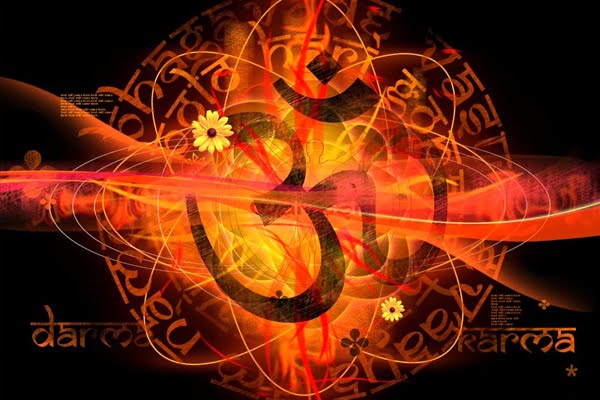Namaste, Hari Om, SitaRam, This blog is for those interested in Hinduism and those who seek simple explanations in life regarding the ways of life, and how we can better our lives. Keep it real.

Thursday, November 4, 2010
Shubh Diwali! Nov 5th 2010! Happy Diwali! 5 days of Diwali?
Namaste, Hari Om,
Shubh Diwali to you all! Diwali in 2010 will take place on Nov 5, 2010!
Its celebrated in great style all accross the world, from the US, Islands, Europe and all the way to the grandest place, India!
There are various ways to celebrate this great time, some countries/towns host Diwali shows/ceremonies - We just attended the Diwali Nagar in South Florida, We performed a Devi Play (Will post the video Soon).
But there are more questions regarding Diwali.. Is it one day, two days or five days? Lets take a closer look...
I have been in India during Diwali time and have celebrated Diwali across the five days. The time is nice when kids and pople go door to door sharing and taking sweets. Also the fireworks are on the same level with the US's 4th of July. Its a great time where lights are everywhere and people are happy. Also its important to note that you have a right to celebrate Diwali, taking it off from work is mandatory and should not come with problems. I myself am taking this day off as a Religious Holiday, not a sick day or personal time. Stand up for yourself, just as others have as well for their religious holidays!
Our borthers and sisters at Hindu Americation Foundation have done so much for Diwali in the political realm in the USA; http://www.hafsite.org/media/pr/diwali-2010 please read their message.
Also, our President of the US will be celebrating Diwali in India; click here to read.
What do the days mean During Diwali? Read ahead from http://www.diwalifestival.org/
Jai Maa
- SimpleHinduBhai
Five Days Of Diwali:
Deewali is a festival of joy, splendor, brightness and happiness. It is the festival of lights and is celebrated with great enthusiasm by all Indians all over the world. The uniqueness of this festival is its harmony of five varied philosophies, with each day to a special thought or ideal. People celebrate each of its five days of festivities with true understanding, it will uplift and enrich the lives.
The first day of Diwali: Dhanteras
The first day of Diwali is called Dhanvantari Triodasi or Dhanwantari Triodasi also called Dhan Theras. It is in fact the thirteenth lunar day of Krishna Paksh, the dark forthnight of the month of Kartik. On this day, Lord Dhanwantari came out of the ocean with Ayurvedic for mankind. This day marks the beginning of deepawali celebrations.
On this day at sunset, Hindus should bathe and offer a lighted deeya with Prasad (sweets offered at worship time) to Yama Raj, the Lord of Death and pray for protection from untimely death. This offering should be made near a Tulsi tree, the Holy Basil or any other sacred tree that one might have in their yard.
The second day of Diwali: Choti Diwali
The second day of dipawali is called Narak Chaturdasi. On this day Lord Krishna destroyed the demon Narakasur and made the world free from fear. On this day, one should massage the body with oil to relieve it of tiredness, bathe and rest so that Diwali can be celebarated with vigour and devotion.
On this night, Yama Deeya should not be lit. The Shastras (Laws of Dharma) declares that Yama Deeya should be offered on Triodasi night with Prasad. Some people mistook it to mean that because Yama Deeya was lit on that night, that it should always be lit on the night before deepavali. This is absolutely not true. It is advisable that one consults with a learned Pandit or Hindu Astrologer for proper guidance on this matter.
The third day of Diwali: Lakshmi Puja on Diwali
This is the day when worship unto Mother Lakshmi is performed. Hindus cleanse themselves and join with their families and their Pandit (priest) and they worship the divine Goddess Lakshmi to achieve the blessings of wealth and prosperity, the triumph of good over evil and light over darkness.
The fourth day of Diwali: Padwa & Govardhan Puja
On this day, Govardhan Pooja is performed. Many thousands of years ago, Lord Krishna caused the people of Vraja to perform Govardhan Pooja. From then on, every year Hindus worship Govardhan to honour that first Pooja done by the people of Vraja.
The fifth day of Diwali: Bhai Duj
The fifth day of the Diwali is called Bhai teeka. This is the day after Goverdhan Pooja is performed and normally two days after Diwali day. It is a day dedicated to sisters. Many moons ago, in the Vedic era, Yama (Yamraj, the Lord of death) visited his sister Yamuna on this day. He gave his sister a Vardhan (a boon) that whosoever visits her on this day shall be liberated from all sins. They will achieve Moksha or final emancipation. From then on, brothers visit their sisters on this day to enquire of their welfare.
This day marks the end of the five days of deepavali celebrations. This is also known as Bhai fota among Bengalis. Bhai fota is an event especially among Bengalis when the sister prays for her brother's safety, success and well being.
Subscribe to:
Posts (Atom)

